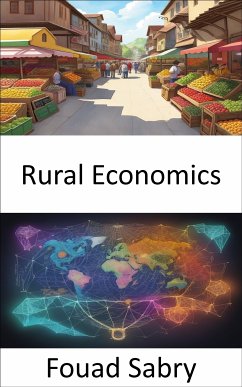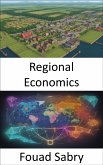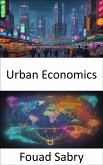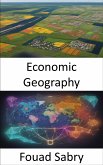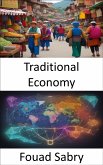What is Rural Economics
The study of regional economies is referred to as rural economics. Rural economies encompass both agricultural and non-agricultural enterprises; hence, rural economics is concerned with a wider range of issues than agricultural economics, which is more predominantly concerned with food systems. Attempts are made by rural development and finance to address more significant issues that are present in rural economy. The absence of economic activities and poverty in rural areas are often the root causes of these economic problems, which are often tied to the movement of people from rural areas. There have been some interventions that have been quite successful in certain regions of the world. Rural tourism and rural electricity have served as anchors for the transformation of economies in certain rural areas. These issues frequently result in income discrepancies between rural and urban areas.
How you will benefit
(I) Insights, and validations about the following topics:
Chapter 1: Rural economics
Chapter 2: Regional science
Chapter 3: Development economics
Chapter 4: Rural area
Chapter 5: Subsistence agriculture
Chapter 6: Socioeconomics
Chapter 7: Agricultural economics
Chapter 8: Family economics
Chapter 9: Criticism of the World Trade Organization
Chapter 10: Cultural economics
Chapter 11: Michael Todaro
Chapter 12: Poverty in China
Chapter 13: Public economics
Chapter 14: Demographic economics
Chapter 15: Rural poverty
Chapter 16: Erik Thorbecke
Chapter 17: Peasant economics
Chapter 18: Yujiro Hayami
Chapter 19: Barbara Harriss-White
Chapter 20: Zhu Ling (economist)
Chapter 21: Elisabeth Sadoulet
(II) Answering the public top questions about rural economics.
(III) Real world examples for the usage of rural economics in many fields.
(IV) Rich glossary featuring over 1200 terms to unlock a comprehensive understanding of rural economics. (eBook only).
Who will benefit
Professionals, undergraduate and graduate students, enthusiasts, hobbyists, and those who want to go beyond basic knowledge or information for any kind of rural economics.
The study of regional economies is referred to as rural economics. Rural economies encompass both agricultural and non-agricultural enterprises; hence, rural economics is concerned with a wider range of issues than agricultural economics, which is more predominantly concerned with food systems. Attempts are made by rural development and finance to address more significant issues that are present in rural economy. The absence of economic activities and poverty in rural areas are often the root causes of these economic problems, which are often tied to the movement of people from rural areas. There have been some interventions that have been quite successful in certain regions of the world. Rural tourism and rural electricity have served as anchors for the transformation of economies in certain rural areas. These issues frequently result in income discrepancies between rural and urban areas.
How you will benefit
(I) Insights, and validations about the following topics:
Chapter 1: Rural economics
Chapter 2: Regional science
Chapter 3: Development economics
Chapter 4: Rural area
Chapter 5: Subsistence agriculture
Chapter 6: Socioeconomics
Chapter 7: Agricultural economics
Chapter 8: Family economics
Chapter 9: Criticism of the World Trade Organization
Chapter 10: Cultural economics
Chapter 11: Michael Todaro
Chapter 12: Poverty in China
Chapter 13: Public economics
Chapter 14: Demographic economics
Chapter 15: Rural poverty
Chapter 16: Erik Thorbecke
Chapter 17: Peasant economics
Chapter 18: Yujiro Hayami
Chapter 19: Barbara Harriss-White
Chapter 20: Zhu Ling (economist)
Chapter 21: Elisabeth Sadoulet
(II) Answering the public top questions about rural economics.
(III) Real world examples for the usage of rural economics in many fields.
(IV) Rich glossary featuring over 1200 terms to unlock a comprehensive understanding of rural economics. (eBook only).
Who will benefit
Professionals, undergraduate and graduate students, enthusiasts, hobbyists, and those who want to go beyond basic knowledge or information for any kind of rural economics.
Dieser Download kann aus rechtlichen Gründen nur mit Rechnungsadresse in A, B, BG, CY, CZ, D, DK, EW, E, FIN, F, GR, H, IRL, I, LT, L, LR, M, NL, PL, P, R, S, SLO, SK ausgeliefert werden.

